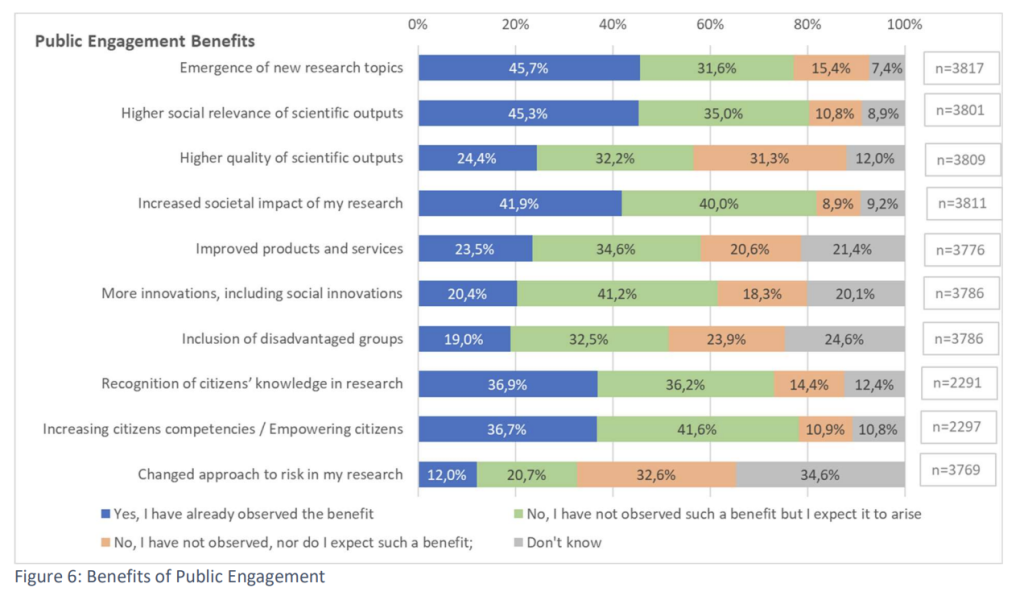
Public Engagement is considered a suited approach when aiming to increase the reach and societal relevance of research. Guided by the overarching aim to serve societal interests, it has the potential to improve and enhance both the research process and the dialogue between science and society. Practices seeking to include non-expert audiences, such as, for example, citizens, consumers or patient groups into the research process can be subsumed under a responsible and inclusive approach on research and innovation.
We have explored practices of Public Engagement among European researchers in a large-scale study comprising 4,180 researchers from 277 different RPOs and 45 different countries of residence. The gender distribution was 54.5% male, 41% male, and 0.5% non-binary. Researchers’ disciplinary background ranged from Social Sciences and Economics to Natural Sciences, Engineering and Arts and Humanities.
We investigated researchers’ involvement of non-academic actors into the research process or decision-making in the time span between 2020 and 2023.
We find that almost two-third of researchers have not cooperated with consumers or applicants, while 50% of researchers have not interacted with non-governmental organisations in any of their latest projects. Researchers who always collaborate with non-academic actors in their projects have mostly done so with government and agencies (8%), companies and enterprises (7%) and citizens (7%). A stable base of one-third of researchers have interacted with each of the different types of non-academic actors in at least a few of their recent projects.
Moreover, our study provides evidence for the numerous benefits resulting from Public Engagement (see Figure x). Almost half of the respondents observed the emergence of new research topics (46%), a higher social relevance of scientific outputs (45%) and an increased societal impact of the research (42). The main motivating factors behind were researchers’ strong conviction that [good] research must engage with the public (46%) and the desire to maximize research impact (44%).

Our study has also helped identify several barriers preventing researchers from engaging with the public. Almost three-quarter of the respondents perceived the time-consuming nature of Public-Engagement practices as a main barrier, followed by almost 60% considering the absence of particular institutional incentives as a main hurdle. Yet, 72% of researchers disagreed that Public Engagement practices negatively affect the quality of research.
More information on the study can be found here: https://super-morri.eu/download/153/findings-and-deliverables/5479/d-2-5-3rd-responsible-research-and-innovation-monitoring-report.pdf